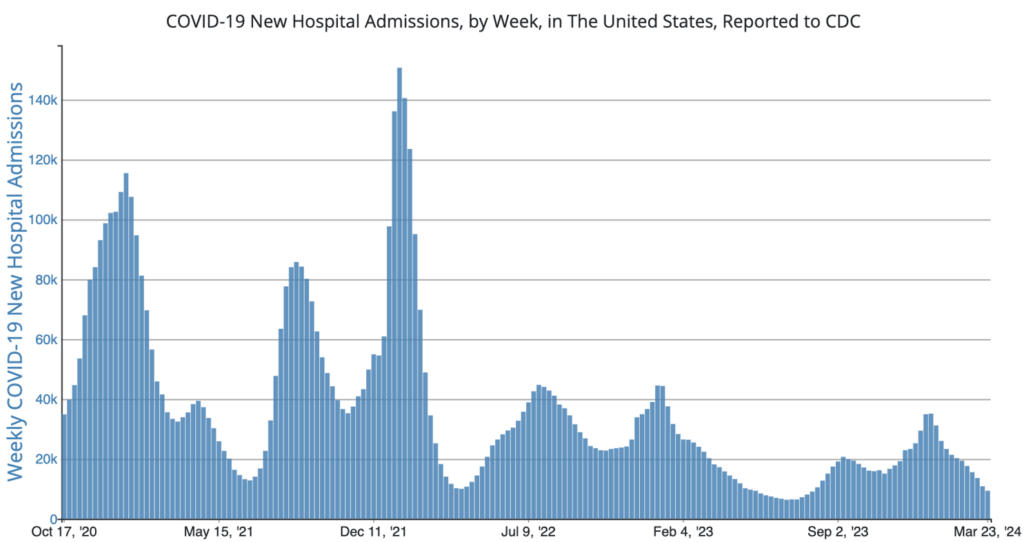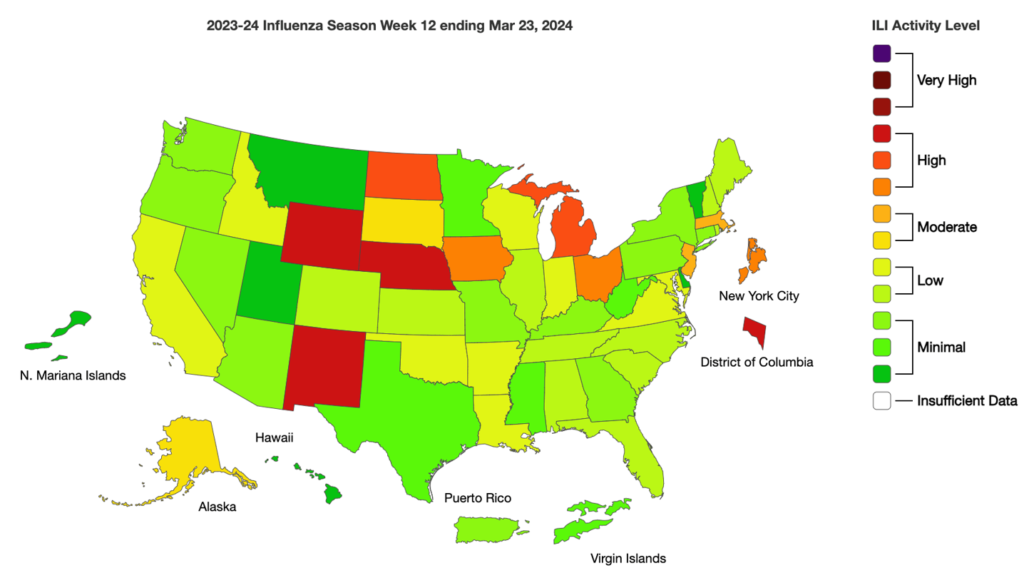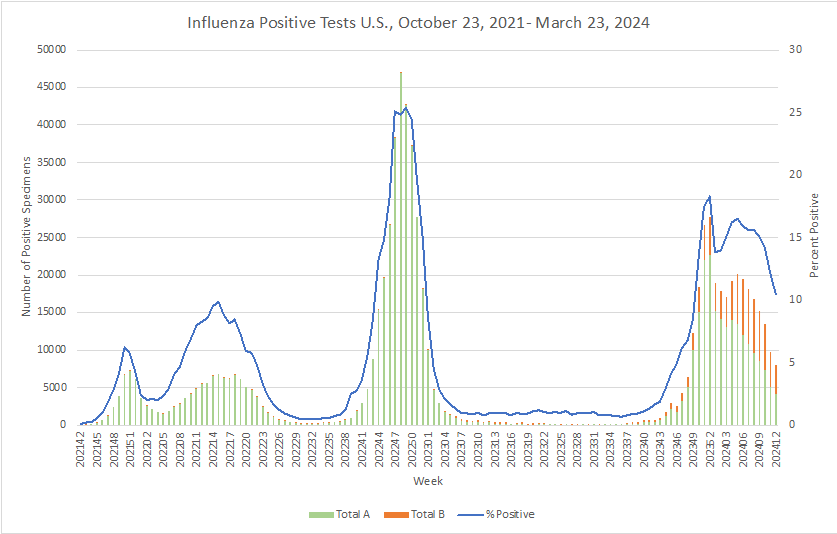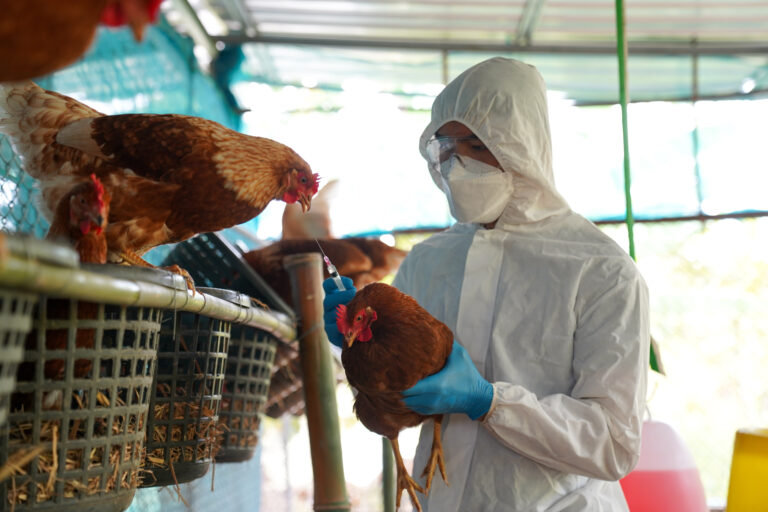You have likely been seeing a rash of news articles about human infection of highly pathogenic avian influenza (H5N1), however the detection is not a critical situation that some articles are leading readers to believe. While at least one person in the US has tested positive and about 12 symptomatic people have been tested, but there are “no signs that the virus has evolved in ways that would help it spread more easily among people.” (NYT) Additionally, CDC states that “this infection does not change the H5N1 bird flu human health risk assessment for the U.S. general public, which CDC considers to be low.”
The infected person had had very close contact with dairy cattle presumed to be infected, the transmission pathway is being investigated, as it could be from birds or could possibly be spreading among cattle. A sample from a sick animal matched to the strain of HPAI that has been detected in wild birds. CDC is currently working closely with state and federal agencies, including USDA, FDA, and local health authorities to further investigate and closely monitor this situation.
The infected person is recovering, as FDA-approved flu antiviral medications are available for treatment and are believed to be effective in treating the illness. An earlier case occurred in 2022, and that person also suffered only mild illness and recovered.
As with many illnesses, prevention is the best protection. CDC recommendations include:
- Avoid unprotected exposures to sick or dead animals including wild birds, poultry, other domesticated birds, and other wild or domesticated animals (including cattle).
- Avoid unprotected exposures to animal carcasses, raw milk, feces, litter, or materials contaminated by birds or other animals with confirmed or suspected H5N1-virus infection.
- Consume only thoroughly cooked foods derived from animals (e.g., milk, meat, etc.).
Note: These foods are safe as long as valid food safety practices are followed, etc.
Herd health plays a key role in monitoring this illness, as well. Any evidence of sickness or suspicion of sick dairy cows, bird, or other mammals should be reported to an accredited veterinarian so proper treatment can be initiated. Typically, the cattle recover from their infection, but milk from sick animals is excluded from the milk supply. Along with this, farms implement enhanced biosecurity measures to minimize risk to farmers, farm workers, consumers, and other animals. This includes minimizing access to wild birds, managing the movement of cattle, cleaning and disinfecting equipment that may have come in contact with sick animals, and not feeding raw milk products to them.
TAG will continue to monitor the status and impact of H5N1 to keep you informed. If you are concerned about potential H5N1 infection, give TAG a call; our public health experts can help.
COVID Risk Matrix:

Influenza:


- Measles cases in the United States have already surpassed the total number of measles cases in the country during all of 2023, per CDC.
- Measles cases in Canada are increasing, warns the chief public health officer. The number of confirmed cases in Canada so far this year is more than three times higher than all infections recorded in 2023. The count is at 40 as of March 27.
- 143 cases of meningitis have been reported to the CDC this year across the country, which is 62 more cases than in the same time frame last year. Most of the cases involve a specific meningococcal strain, ST 1466, which is disproportionately affecting adults ages 30 to 60, Black or African American people, and those with HIV, per CDC.
- Kerala, India, has been reporting a surge in the cases of mumps, a contagious viral disease that usually affects children. As of March 22, more than 15,000 cases have been recorded in the southern state over the last two months.
- A study reveals a public health challenge posed by the emergence and international transmission of Streptococcus pyogenes M1 infections between Iceland and Scotland that affected young children disproportionately.
- Health authorities in Japan have issued an alarm over the sharp increase in cases of severe streptococcal infection recorded in the country, especially in the Tokyo area, where cases have tripled in a year.
- US tuberculosis cases were at the highest level in a decade in 2023. Forty states reported an increase in TB, and rates were up among all age groups. More than 9,600 cases were reported, a 16% increase from 2022 and the highest since 2013.
- Two people have recently been infected with avian influenza in the US. The person who recently tested positive in Texas had exposure to dairy cattle that was presumed to be infected with HPAI A(H5N1) virus. The other individual who tested positive was from Colorado and this occurred in 2022.





